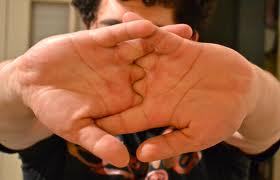Knuckle-cracking. Annoying? Yes. Pleasurable? Extremely. Dangerous?
I'm used to random medical questions from friends and family, but this one really got me. Is knuckle cracking associated with arthritis? To my dismay, I didn't have an educated answer.
Until now.
The few studies I collected after perusing through different medical databases, including PubMed, Google Scholar and Web of Science, were small and mostly outdated. That said, there is a sufficient lack of evidence to associate knuckle-cracking with the feared progressive breakdown of joint cartilage, also known as osteoarthritis (OA).
Cracking the Myth:
The most recent and most methodologically-sound investigation on the association between knuckle-cracking and OA came from the Journal of the American Board of Family Medicine (JABFM). Published in 2011, the retrospective case-control study compared knuckle-cracking history between older adults with and without radiographic-evidence of OA. Based on the non-significant results, the authors concluded that knuckle cracking was not a risk factor for osteoarthritis in their studied population.
Two other studies came up from this mini-literature search, both published more than 20 years ago (see here, and here). Both of had notable weaknesses to their study design, including small sample sizes, varying use of objective tools for diagnosing OA (e.g., xrays) and having a high probability of selection bias. Despite this, neither study demonstrated any evidence indicating an association between the knuckle cracking and developing OA.
Take-Home Point:
The traditional aphorism "absence of evidence is not evidence of absence," may ring true in this case, where our clinical question is met with a paucity of data.
Despite the lack of good studies, it should be reassuring to all the knuckle-crackers out there that this association between your favorite annoying habit and the development of arthritis is likely unfounded.
*Special thanks to Dr. Tietjens for his unusual interest in assisting me with this topic.
**Originally written for The American Resident Project.
